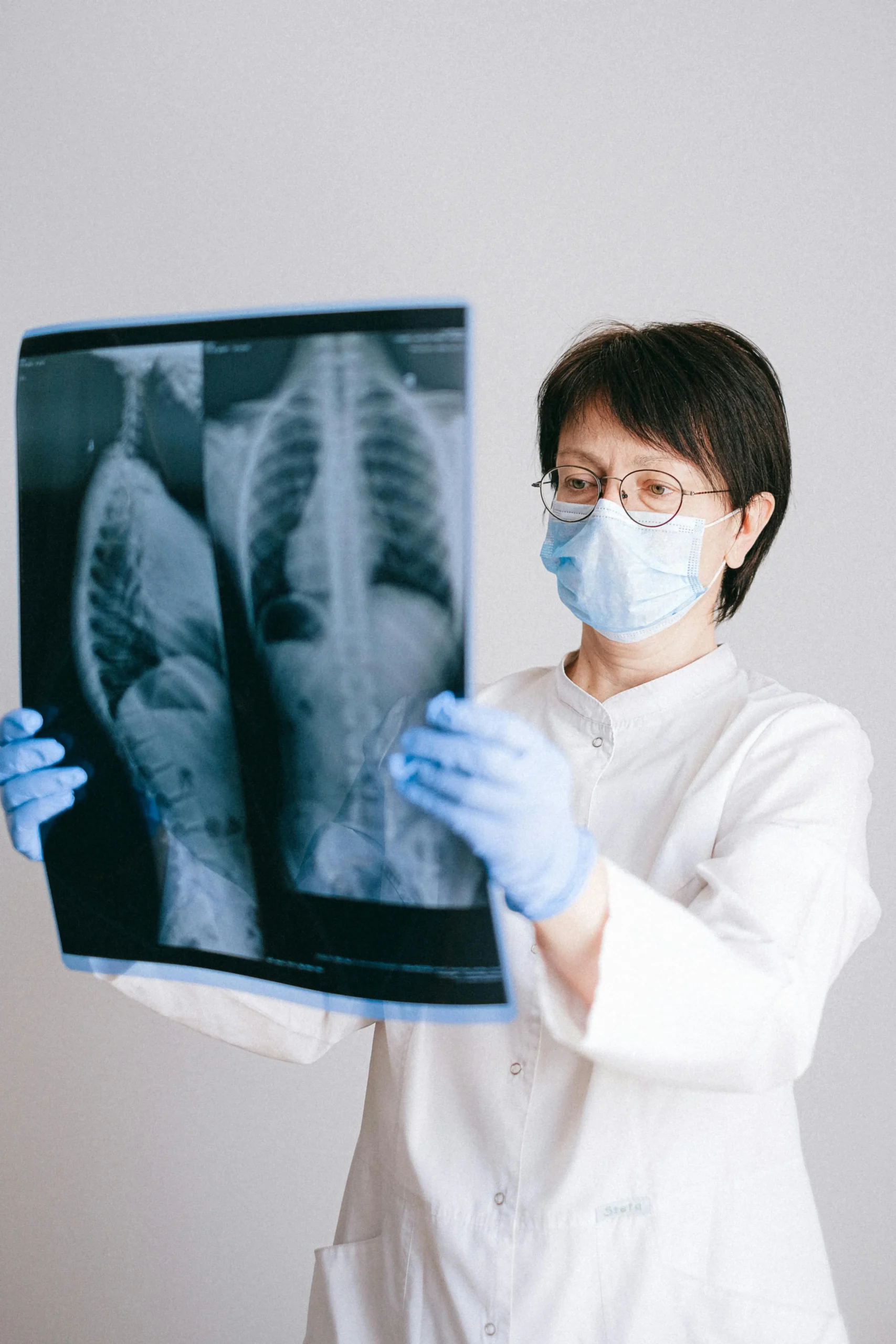The pandemic completely upended our civilization, and its effects may still be seen in all facets of healthcare. The dual impact of COVID-19 on diagnostics brings opportunities and challenges for cancer patients and survivors that should not be disregarded. Making educated health decisions requires us to comprehend how the virus has changed cancer screening procedures as we navigate this new normal. We’ll examine the significant impact of COVID-19 on cancer diagnostics in this blog article, including how screening delays and the transition to telemedicine have affected patient care. Whether you’re a caregiver looking for information or a patient confronting uncertainty, come learn key concepts that will strengthen your journey through diagnosis and beyond!
Introduction: COVID-19’s effects on cancer diagnosis
The COVID-19 pandemic has had a dramatic impact on many aspects of our world, with cancer diagnosis being one area most affected. Many patients now find that identifying possible cancer symptoms is a complex battle that is accompanied by lockdowns, social distancing policies, and disruptions to the healthcare system. Many people cancel checkups or postpone testing out of fear of getting the virus, which leaves them unsure of their health.
Simultaneously, this exceptional circumstance has highlighted the importance of prompt discovery for successful treatment. For all patients navigating these tumultuous seas, it is imperative to comprehend the dual impact of COVID-19 on cancer diagnosis, since new obstacles seem to arise every day. For individuals who have been diagnosed with cancer, what does this mean? In this difficult time, how can people best advocate for themselves? Let’s explore what you should know about this changing situation and provide you the tools you need to manage your healthcare.
Recognizing the connection between cancer and COVID-19
Surprising links between COVID-19 and cancer have been discovered. Research suggests that those with a history of cancer may be more vulnerable to contracting the virus. Due to the often weakened state of their immune systems, they are more susceptible to serious sickness.
Furthermore, a few studies indicate that COVID-19 might affect how quickly tumors develop and change how well treatments work. Patients who are already facing cancer may experience physiological repercussions from the stress and anxiety brought on by the pandemic.
Delays in receiving care cause worries regarding the staging and management of the disease for those who are already receiving therapy. Patients who require prompt interventions experience extra layers of anxiety due to this uncertainty.
As they negotiate this difficult terrain together, patients and healthcare providers must both be aware of these complex relationships. Knowledge can enable people to make well-informed decisions about their health in these historic times.
Cancer sufferers’ struggles during the epidemic
Cancer sufferers have encountered many difficulties during the pandemic. The delay in screening and diagnosis has been a significant obstacle. Patients became concerned about their conditions as a result of numerous facilities delaying regular check-ups.
Getting therapy became an additional challenge. In an effort to reduce exposure hazards, some hospitals restricted patient visits, which complicated the continuing care plans for patients receiving radiation or chemotherapy.
It is also impossible to ignore the psychological cost. Patients frequently experienced feelings of isolation when their support groups were moved online or discontinued. They found it challenging to navigate their health journeys due to the additional layers of stress caused by the ambiguity about COVID-19.
Every hospital visit also carried a heavy burden of fear of infection, which many people found difficult to get past. Every meeting was fraught with risk, compelling patients to make difficult choices about how to balance their cancer treatment against the possibility of contracting the virus.
Prolonged examinations and diagnosis
Cancer screenings have been greatly impacted by the pandemic. Numerous institutions deferred regular tasks in order to give priority to COVID-19 treatment.
Extended wait periods or complete cancellations of appointments were experienced by patients. People found it challenging to identify possible problems in their early stages as a result of this disturbance, which raised worries regarding late-stage diagnoses.
Some people completely avoided going to the doctor because they were afraid they might get infected. Consequently, symptoms that ought to have prompted early assessments were not reported and were not addressed.
Experts fear that in the upcoming years, there will be an increase in cases of advanced cancer stages due to a decrease in screening rates. Survival rates and treatment outcomes may be impacted by the ripple effect.
For individuals already coping with health issues, navigating these delays adds another level of stress. For people who are at risk, this delay is especially concerning because early detection is essential in the fight against cancer.
Obstacles to receiving medical care
For many people, getting cancer therapy during the COVID-19 pandemic has proven to be difficult. Hospitals rescheduled or cancelled appointments as a result of giving priority to COVID-19 care. Some felt helpless in their fight against cancer as a result of this change.
Restrictions on travel also had a big impact. Lockdowns and restrictions on public transportation made it impossible for patients to get to treatment facilities. These obstacles postponed necessary treatments.
Increased concerns about safety also prevented people from getting medical help in a timely manner. Many were concerned that they would miss out on important therapies due to virus exposure in hospital environments.
Financial strains also surfaced, since job losses had an impact on insurance coverage and required out-of-pocket expenses. All of these challenges added to the already challenging experience of managing a cancer diagnosis in the midst of a global health emergency.
Support networks became overburdened as caregivers attempted to help loved ones through treatment while simultaneously managing their own worries about dangers to their health and safety.
The effect on patients’ minds
The psychological impact of COVID-19 on individuals with cancer is significant and complex. The already overwhelming experience of receiving a cancer diagnosis may be eclipsed by the fear of infection. A lot of people are dealing with increased anxiety and concerns about their health.
Another element that now affects mental health is isolation. Patients now feel isolated in their challenges due to the removal of essential support networks brought about by social distancing tactics. Coping is difficult enough without the typical consolation that friends and family may offer.
Furthermore, waiting for tests or treatments during the epidemic makes you feel even more anxious. Patients may experience anxious nights and restless nights if they think that delays will make their prognosis worse.
It’s critical to acknowledge these emotional difficulties as real issues that require care. More than ever, having open discussions about mental health is essential because it lets individuals express their anxieties without feeling judged or stigmatized.
Modifications to COVID-19 cancer diagnosis procedures
The COVID-19 pandemic has led to notable modifications in cancer diagnostic procedures. Many healthcare facilities pushed the deployment of telemedicine in order to limit exposure. Oncologists might provide home consultations for patients, lowering their risk and still providing professional advice.
During this period, screening techniques also changed. To assure safety, conventional practices were modified, frequently including at-home testing kits when practical. This change let patients remain involved in their health journeys while also preserving continuity of care.
Modifications were also made to diagnostic imaging. Strict hygiene protocols were instituted by hospitals, and appointments were carefully arranged to reduce crowding. These changes were made in an effort to strike a compromise between patient safety and essential care for patients with cancer, as early identification is still crucial.
Telemedicine use for initial and follow-up consultations
During the epidemic, telemedicine has proven to be an essential resource for cancer patients. They can communicate with medical professionals from the comfort of their own homes thanks to it. This is particularly critical in situations where movement is restricted or health hazards are elevated.
Video chats can be used for initial consultations, which allows patients to talk about symptoms and treatment options without having to wait in busy waiting rooms. This translates into less fear and more convenience for a lot of people.
Additionally, follow-up visits are now scheduled online. It is simple for patients to share any issues they may have or to check in on their progress. In order to guarantee that no patient feels alone during such difficult moments, continuity of care is essential.
Furthermore, telemedicine expands therapy options while upholding safety procedures by providing access to doctors who might not be nearby. The way that patients feel their journeys through cancer diagnosis and treatment has changed as a result of the incorporation of technology into healthcare.
Different approaches to screens and diagnostic exams
As a result of the pandemic, new techniques for cancer screenings and diagnostic testing arose. A lot of clinics started utilizing cutting-edge imaging technologies that preserve accuracy while reducing in-person visits.
With the rise in popularity of at-home test kits, patients could now obtain samples in the convenience of their own homes. These kits are especially helpful for certain cancers, such colorectal cancer, where results can be greatly improved with early detection.
Some clinics also experimented with liquid biopsy methods. By examining blood samples for tumor markers, this novel method provides a less intrusive alternative to conventional biopsies.
Another level of assistance was given through telehealth sessions. Patients wouldn’t have to enter a clinic or hospital to talk about their symptoms and worries. In these uncertain times, this not only prioritized patient safety but also ensured continuity.
These modifications underscore the tenacity of the healthcare system while stressing the significance of continuous observation and prompt action in the treatment of cancer.
The value of early detection in the management of cancer
In order to effectively treat cancer, early detection is essential. Better patient outcomes and more effective therapies are frequently associated with early disease detection.
Early detection of cancer often allows for less aggressive therapy. This greatly raises survival rates while also assisting in maintaining quality of life. Generally, traditional procedures such as localized radiation therapy or surgery are effective in treating early-stage tumors.
Furthermore, prompt diagnosis enables medical professionals to create customized treatment regimens based on each patient’s requirements. This customized strategy increases the chances of effective treatment and recuperation.
How a patient should manage the combined effects of COVID-19 and cancer
During a pandemic, navigating the difficulties of cancer treatment calls for persistence and proactive communication. Maintain contact with your medical team. Frequent check-ins help to dispel any doubts you may have regarding your treatment plan.
Put your safety first when you go to appointments. Don masks, avoid close contact with others, and don’t be afraid to inquire about hygienic procedures from establishments. The most important thing is your health.
When it is feasible, use telemedicine for consultations. With no additional exposure hazards, virtual visits can save time and yet offer you with the required assistance from your healthcare specialists.

Interaction with medical professionals
It’s critical to have effective communication with healthcare practitioners, particularly under trying circumstances like a pandemic. Patients ought to feel free to communicate and share their worries in an honest manner.
It is crucial to ask questions regarding symptoms, available treatments, and the security of in-person visits. Don’t be afraid to voice your worries or fears. A competent supplier will pay attention and deliver comfort.
Make the most of technology. When in-person visits are not possible, secure messaging solutions, web portals, and video conversations can help to facilitate discussions.
Making a list of your questions in advance of your consultations can assist guarantee that nothing is missed. This proactive strategy helps you and your healthcare staff communicate clearly.
Recall that cooperation produces better results. In the face of uncertainty, maintaining open lines of communication fosters a relationship centered on your health journey.
Adhering to safety protocols when visiting hospitals
It can be intimidating to visit a hospital during the pandemic. Prioritizing safety is crucial at every stage of the trip.
Check with the hospital for any revised instructions before leaving. Many have put in place stringent procedures to safeguard both employees and patients.
Put on a mask that covers your mouth and nose tightly. This easy step lowers the chance of transmission considerably.
Try to keep the number of people you are traveling with to a minimum. Less people equals better adherence to safety precautions and less crowded conditions.
Observe all warning signals and directions given by hospital personnel. They are there to make sure that while everyone is receiving essential care, they stay safe.
Making use of available assistance
It can be lonely with cancer, especially when there is a pandemic. Support systems, however, are crucial for helping patients get over these difficulties.
Communities can be connected through online forums and support groups. Talking to people who have been through similar things to you can be consoling and uplifting. Many businesses have modified their offerings to accommodate clients’ remote needs.
Equally vital is mental wellness. Online counseling services that emphasize mental health in the face of uncertainty are offered. Experts assist in addressing worry or anxiety associated with COVID-19 and cancer.
Important information regarding accessible resources is also supplied by nearby cancer centers. Dedicated teams are frequently on hand to help with practicalities, such as financial preparation or transportation.
Never be afraid to ask for assistance when you need it. Making use of these resources not only increases resilience but also promotes a feeling of community during trying times.
Expert Perspectives: Onc’s Perspectives
Expert perspectives help us grasp the current situation better for cancer sufferers during this trying period. While COVID-19 has upset traditional routes to diagnosis and treatment, oncologists stress that it has also sparked innovation in patient care.
By incorporating telehealth into their operations, many oncologists are adjusting to the new normal. With this method, patients can receive consultations without running the risk of being exposed in medical facilities. Experts express optimism over these modifications, pointing out that virtual appointments can increase accessibility for people with transportation or mobility limitations.
Furthermore, in today’s patient care, mental health support is crucial. In cases where feelings of isolation or anxiety emerge as a result of pandemic-related anxieties as well as cancer experiences, oncologists advise pursuing psychological services.
Patients should have a sense of empowerment since there is a way to resolve this twin crises that entails proactive management of their medical requirements and open contact with healthcare personnel. For many people confronting these obstacles, navigating cancer diagnosis within COVID-19 is not only achievable but increasingly effective with professional advice and continual modifications within the medical community.

